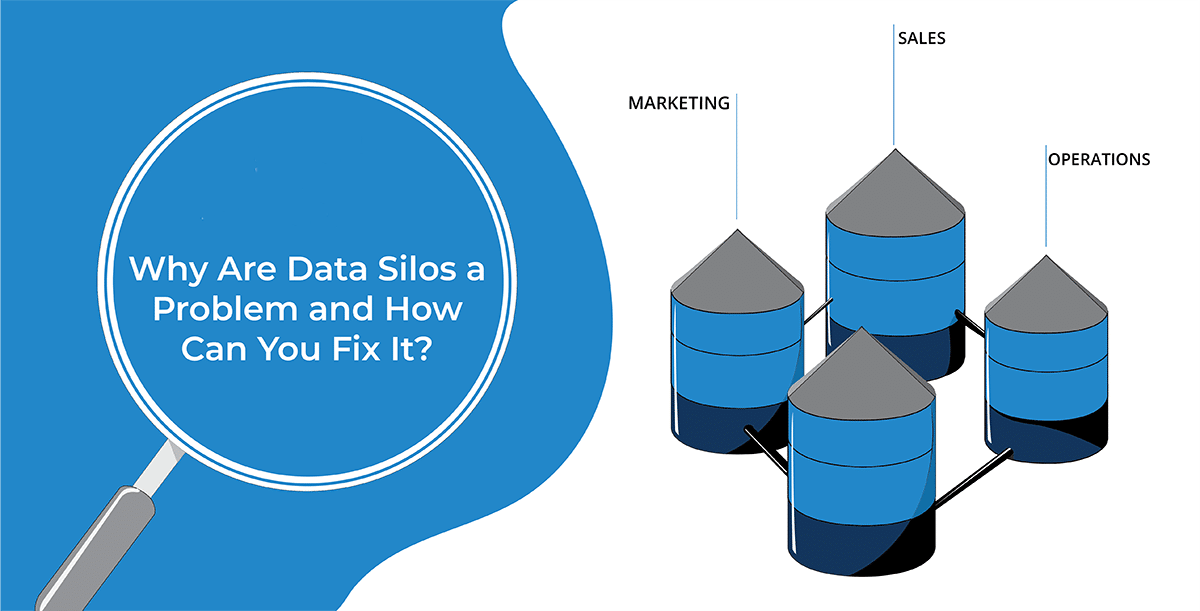Why are data silos problematic? Understand the silent threat of data silos and their detrimental impact on business agility, innovation, and overall success.
Businesses rely on data to make informed decisions. From sales figures to customer feedback, data helps organizations to understand their successes and failures.
However, many organizations continue to struggle with data silos. Data silos refer to different departments, teams, or individuals within an organization who hoard data and restrict access to others.
While data silos may seem like an efficient way to manage information. They can cause significant drawbacks within an organization. In this blog post, we’ll explore the top reasons why are data silos problematic in organizations.
1. Inconsistent and Inaccurate Data
Data silos breed inconsistencies and inaccuracies in data. When data is scattered in different locations, it becomes difficult to maintain data quality.
Each siloed unit may collect and analyze data, leading to incompatible data sets. Incomplete information leads to poor decision-making, which affects an organization’s performance.
2. Delayed Decision-Making
Data silos make decision-making more cumbersome and time-consuming. When data is stored in different silos, it takes time to merge information from all sources.
This delay may result in missed opportunities or inaccurate decision-making. Delayed decisions may lead to missed market trends, customer demands, and competitor actions.
3. Low Collaboration
Data silos create a work culture that is siloed and fragmented. Siloed teams tend to work independently. This reduces the opportunity to collaborate and share knowledge.
This lack of collaboration can affect the morale and productivity of employees. In contrast, cross-functional teams that collaborate and share information foster an environment of innovation and growth. To use data, organizations must break down these silos and promote collaboration across departments.
By doing so, they can leverage the potential of their product information and drive success. Don’t let data silos hinder your organization’s growth, discover more here to break them down and unlock the full value of your data now.
4. Increased Costs
Data silos increase costs for organizations. Having many data sources that are not connected means key data is duplicated and often ends up being stored in more than one location. This can result in increased data storage costs and licensing fees.
Data silos negatively impact organizations by reducing their ability to leverage the largest possible dataset available to them. This in turn renders their analysis less efficient.
5. Security Risks
Data silos pose security compliance risks to organizations. When information is stored within silos, it becomes challenging to secure all data across the organization. In several fields, such as within the health industry, regulatory authorities have set standards for data security.
Data silos are not compliant and violate such standards. This omission results in severe security breaches.
This in turn results in the leakage of sensitive and confidential information of an organization. This may prove detrimental to the brand’s reputation.
Explore the Reasons Why Are Data Silos Problematic and Detrimental Impact on Business
Data silos may seem like a convenient way to store and manage data, but they can hinder organizational success. From lack of collaboration to inconsistent data, silos have many drawbacks that can impede growth and progress. If organizations want to thrive, it is crucial to break these silos and embrace data integration.
It is for a more unified and efficient approach. So, let’s work towards tearing down these barriers.
Find answers on why are data silos problematic and integrate data across all departments and systems to unlock our full potential. Take action and break the silos!
Looking for more tips and advice? You’re in the right place! Make sure to bookmark our page and come back to check out more interesting articles.




























































